Netflix’s Beef: Why Is The Soundtrack All Throwback Songs, What Do The Title Cards Mean And Other Questions Answered
It's all in the details.
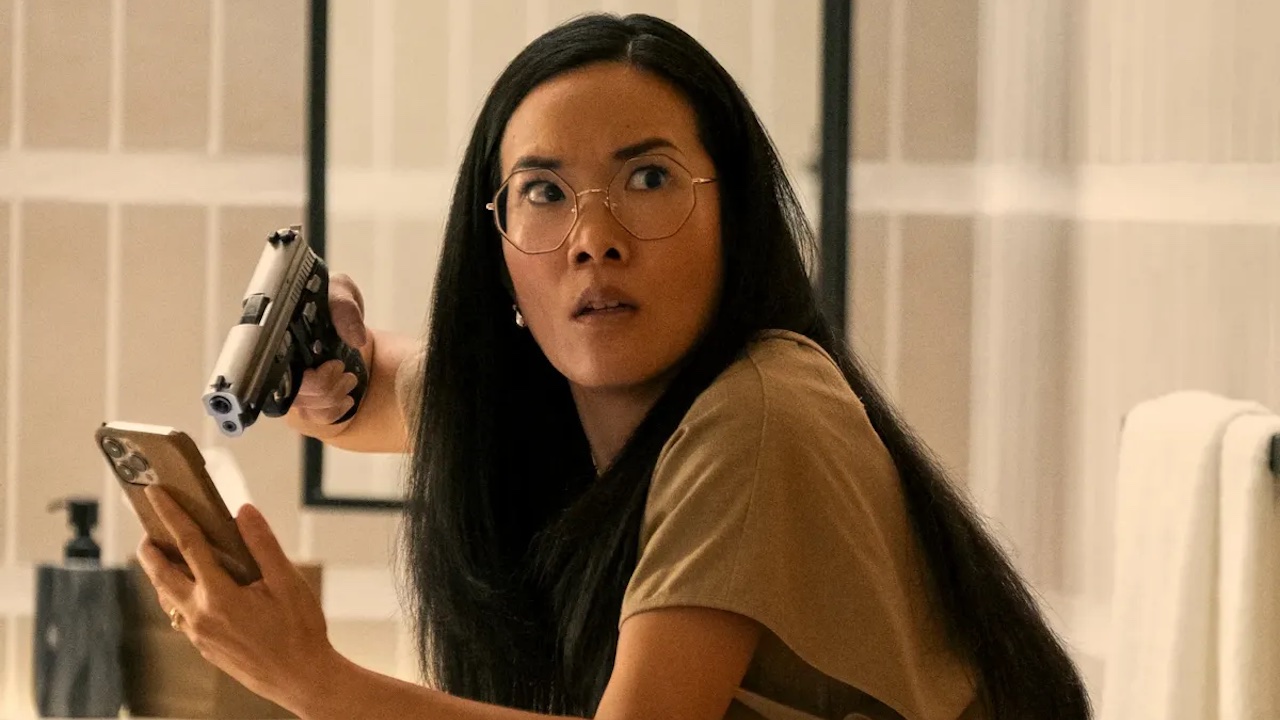
Warning: SPOILERS for Netflix's Beef are ahead!
This past week, we’ve been graced with one of the best Netflix shows in recent memory with the first season of Beef, a thoughtful and critically-acclaimed dramedy about how road rage connects two people who live virtually different lives. Right off the bat, Beef is not only calculated in the revenge plots led by Ali Wong and Steven Yeun’s characters after a car incident, but in just about every element of the production. If you’ve been reading into the soundtrack choices and artwork displayed at the top of every episode, or noticed there are a lot of crows in key points of the series, you’re in the right place.
Beef is definitely a rare series that took the time to not only tell a complex story that explores two characters haunted by anger and emptiness in their lives, but is very intentional in many other aspects of its thematics. They do say the devil is in the details, don’t they? Well, that very much applies to this show. Let’s break some of your questions down.
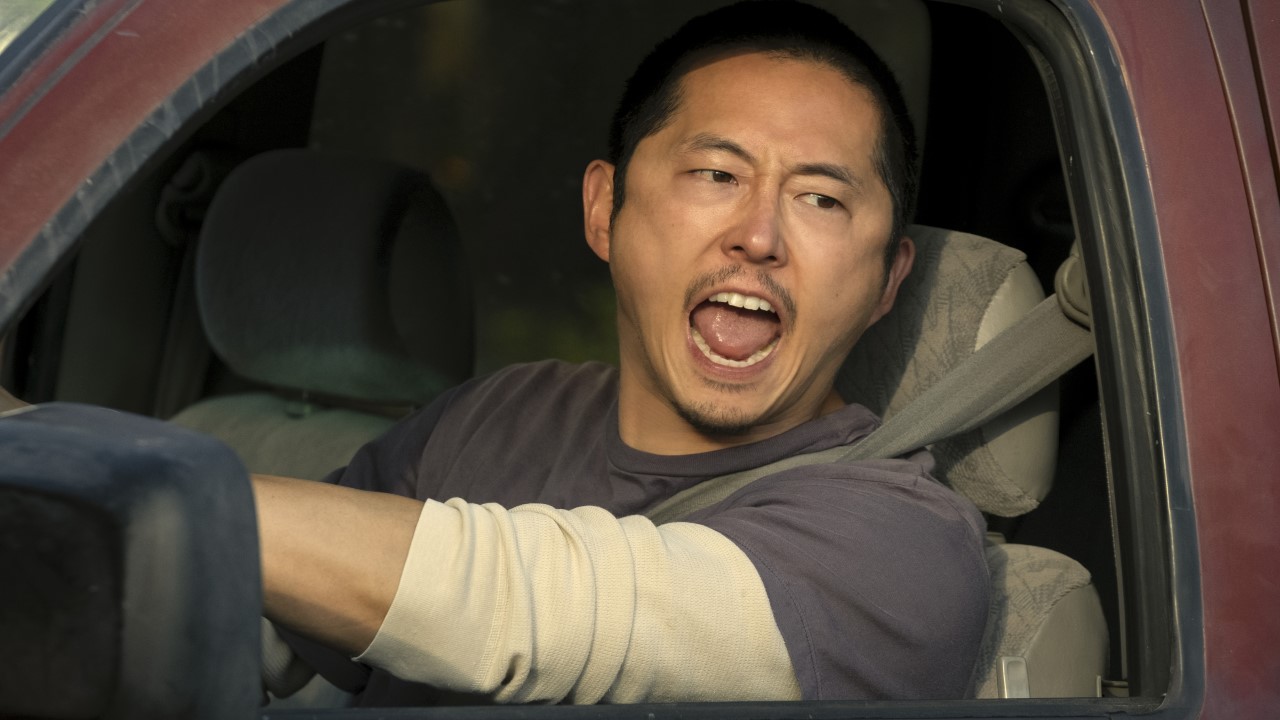
Why Is The Soundtrack All Throwback Songs?
When Episode 1 ended with Hoobastank’s “The Reason,” I sat up in my chair and had a feeling I was in for an awesome experience. I don’t know exactly why except for the fact that I absolutely loved the use of the song drop, especially considering the throwback song was clearly speaking to these characters who are both fiercely unhappy, but have each found something to put all their energy in at the moment Danny leaves her home smiling after peeing all over the floor there and Amy runs after him in a fit of rage.
Upon watching more of the series and hearing more throwback hits like Sugar Ray’s “Fly” and Christina Aguilera’s “Genie in a Bottle” I realized the entire soundtrack is older songs specifically from the ‘90s and ‘00s (with a few exceptions) even though the show itself takes place in present day. Why? Per Netflix, Beef’s showrunner Lee Sung Jin asked that music such as what we hear in the soundtrack be in the show due to the “angsty rage of that era of music,” as music supervisor Tiffany Anders recalled. She also said this:
There was a real sense of apathy and loneliness, a very self-aware and confessional quality to the lyrics.
Listen closely to the soundtrack throughout the series, and there are all kinds of song choices that really speak to how its characters are feeling throughout Beef.
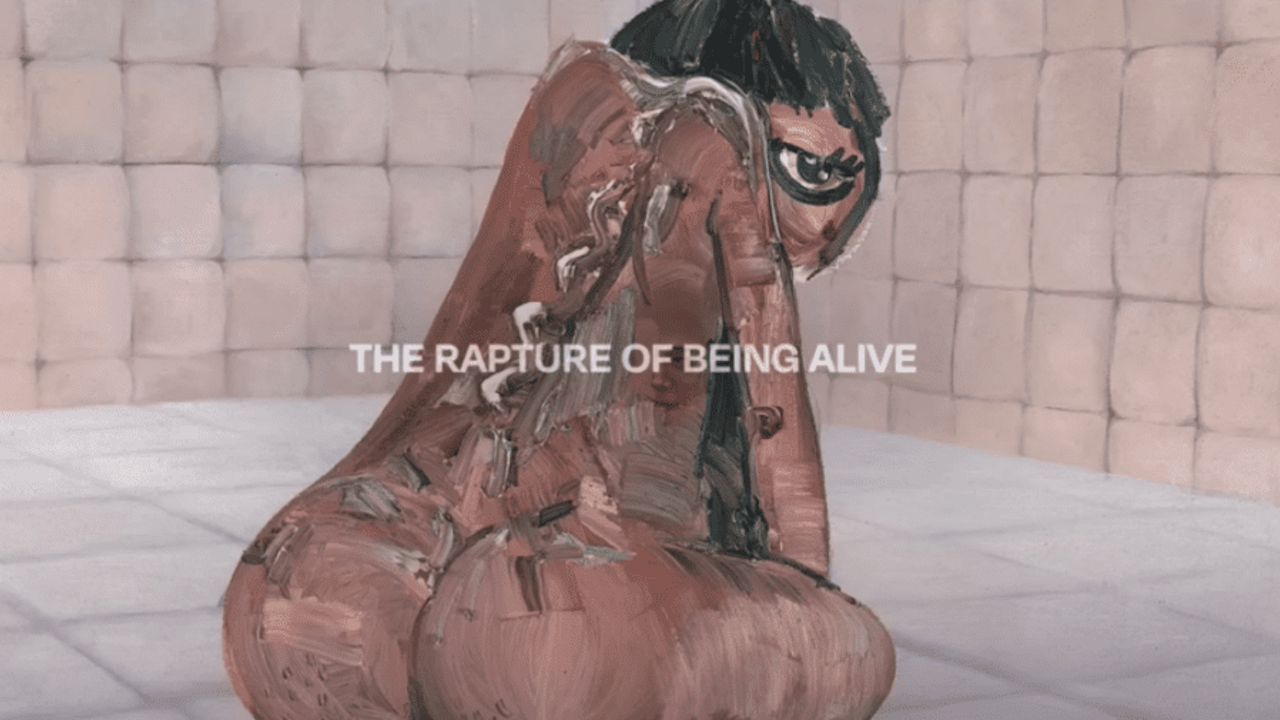
What’s Up With The Title Cards?
Let’s also talk about the artwork that introduces each episode of Beef, including each episode title. Along with the episodes themselves having curious titles like “The Rapture of Being Alive” or “The Drama of Original Choice,” a new piece of artwork is showcased during every title card. If you’ve been wondering where the range of art is from, it’s actually original artwork from David Choe, who also plays the role of Isaac in Beef. As an established and very unique artist in his own right, the creator chose the pieces based on what he thought would fit each episode, per Netflix.
Your Daily Blend of Entertainment News
When it comes to the titles of the episodes themselves, each one of them has specific inspirations that Lee Sung Jin chose to reference, often from literature. For example, Episode 3’s title “I Am Inhabited by a Cry” is a quote from the Sylvia Plath poem Elm, per The Tab, and episode 10’s title “Figures of Light” comes from psychiatrist C.G.Jung’s Alchemical Studies, where he suggests that humans need to delve into their darkness in order to move on from things.
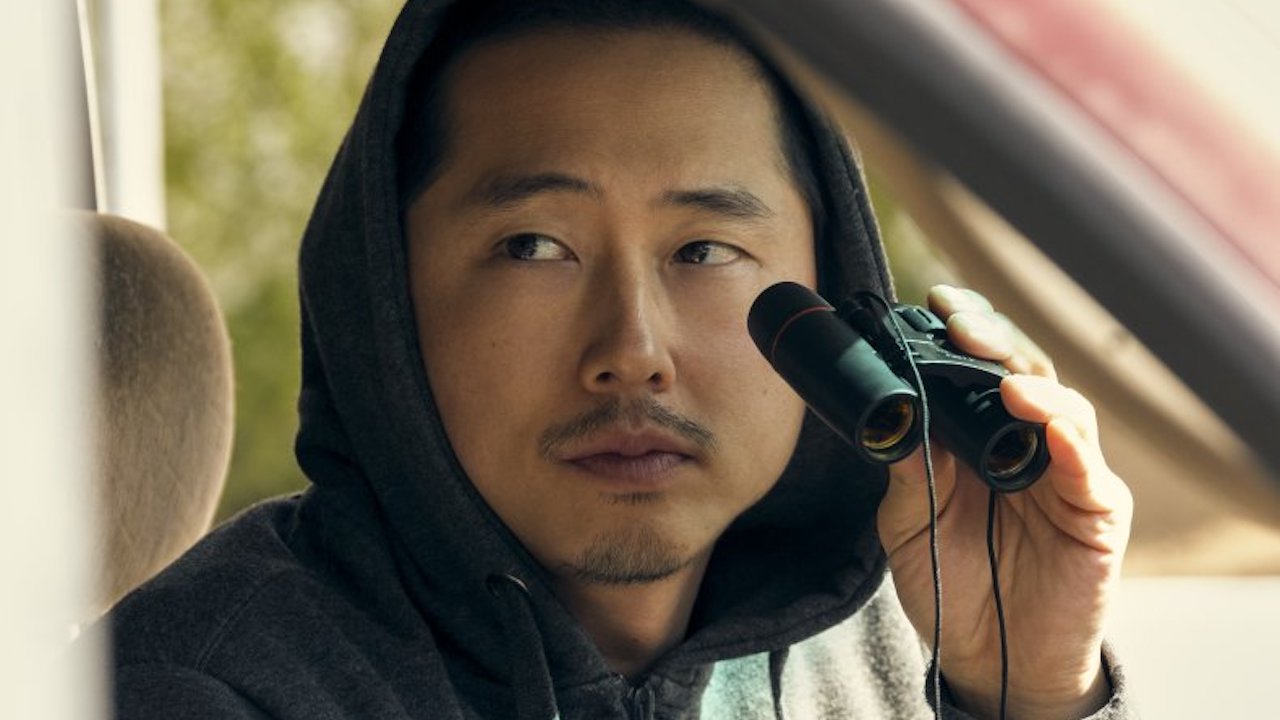
What Do The Crows Symbolize In Beef?
Then there’s the flock of crows of it all. You may or may not have noticed that throughout the series crows haunt in the backdrop of the series, such as in an early episode when Amy ends a catfish call with Danny’s brother after a bunch of them fly behind her. Episode 5 then references a “Harvard crow study” where Michael tells Bobby they put a guy in a Dick Cheney mask and had him be cruel to a flock of crows because they remember faces birds across the country attacked the real Dick Cheney.
There was a real-life study like this done by the University of Washington, per The Seattle Times, that learned that crows remember faces. In the last episode of Beef, crows are seen communicating through closed-captioning in a surreal moment in the series, which ultimately serve as a central element to a plot point (we won’t get into every spoiler here). Crows symbolize numerous things in different cultures, but most widely are thought of as signs of bad luck. In my interpretation, Amy and Danny’s initial meeting is an example of bad luck, but their connection is prolonged by each of their obsessions with revenge leading the crows to start recognizing (and even talking) to them both.
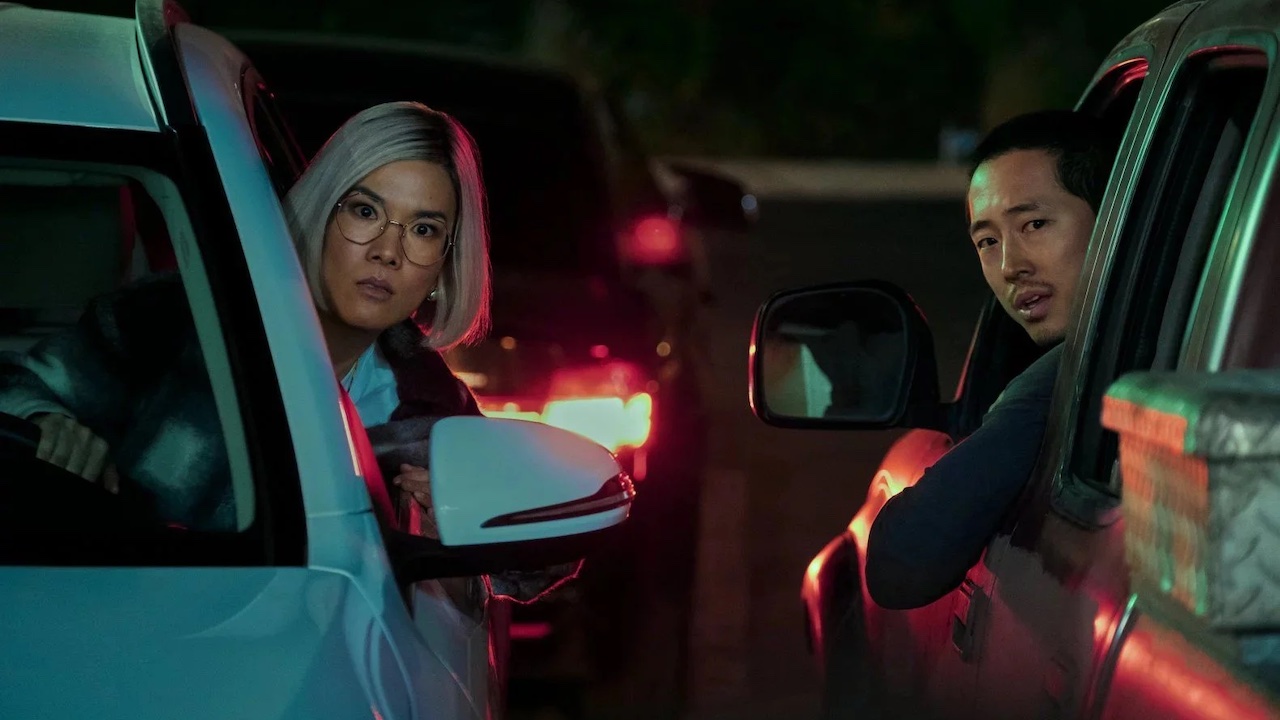
What Inspired Beef?
If you’re curious about the origins of Beef, it was actually inspired by the creator having his own road rage incident where he followed another driver for “like 30 to 40 minutes.” The experience influenced him to explore road rage in an extreme setting, per Today. In his words:
I think for a lot of us when we're stuck in our status quo, usually something dramatic has to happen to shake us out of it… I think that's the case with Danny and Amy — they're so entrenched in their ways that it took this road rage to shake them out of it, and I think it becomes a scapegoat for a lot of other things going on in their life.
In the case of the characters in Beef, he wanted to explore how their anger for one incident disrupts deep-seated feelings they were sweeping under the rug before.
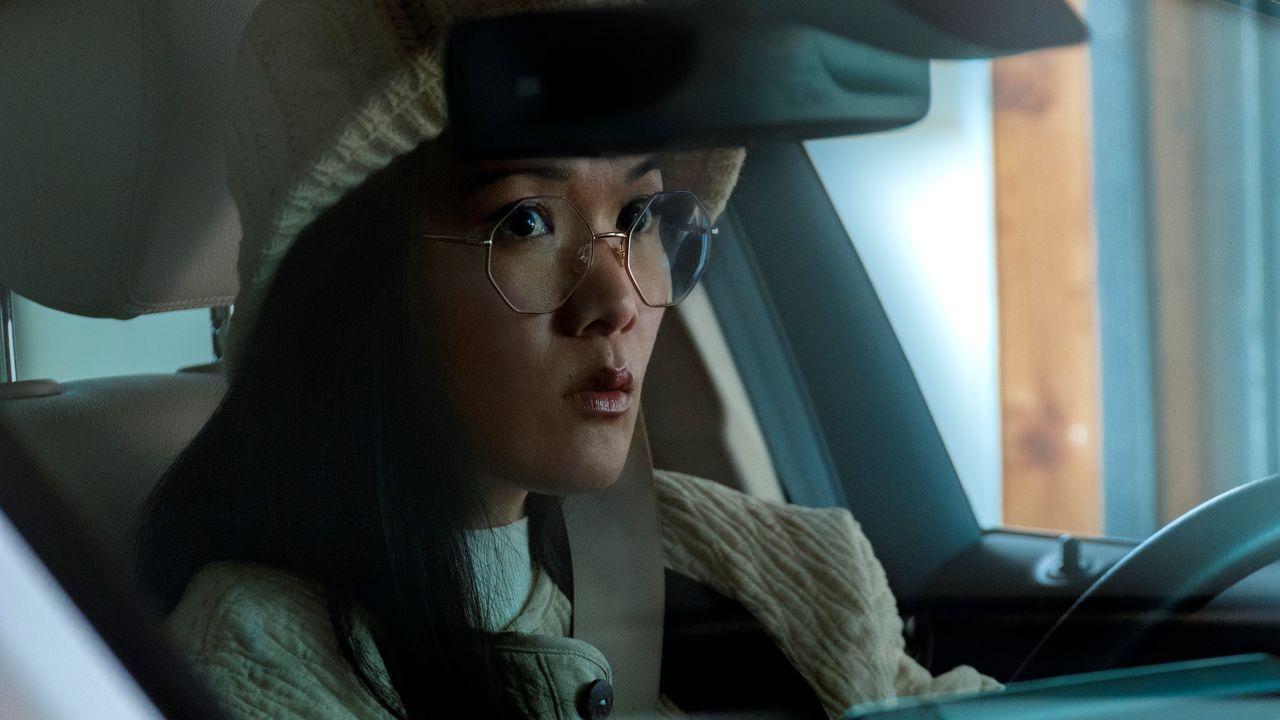
Will There Be More Beef?
The final question on the top of many viewers' minds after finishing up the 10-episode season is whether Beef is meant to continue or be a contained story. The good news is that Lee Sung Jin told Rolling Stone he has “three seasons mapped out” in his head currently. Considering the show being No. 1 on the Netflix TV charts since debuting in April, I’d imagine more seasons are very much on the table following the Beef ending.
What a journey Beef was! Shows as thoughtful as this don’t come around everyday, and with all the details that encompasses Season 1, it won’t be long before I want to do a rewatch.

Sarah El-Mahmoud has been with CinemaBlend since 2018 after graduating from Cal State Fullerton with a degree in Journalism. In college, she was the Managing Editor of the award-winning college paper, The Daily Titan, where she specialized in writing/editing long-form features, profiles and arts & entertainment coverage, including her first run-in with movie reporting, with a phone interview with Guillermo del Toro for Best Picture winner, The Shape of Water. Now she's into covering YA television and movies, and plenty of horror. Word webslinger. All her writing should be read in Sarah Connor’s Terminator 2 voice over.
